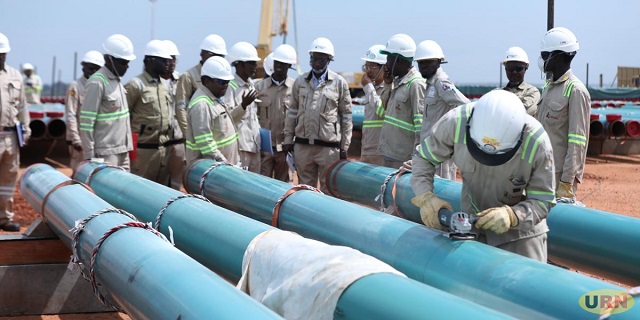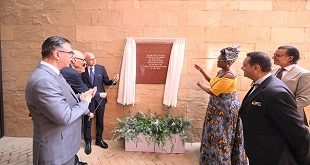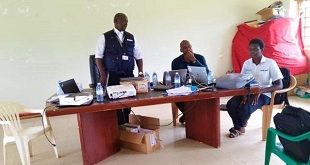
Bulisa, Uganda | THE INDEPENDENT | Ugandan insurers are slowly making inroads in taking up risks in the oil and gas sector despite the challenge.
By the end of 2023, Ugandan insurers were operating in the Tilenga, Kingfisher, and East African Crude Oil pipeline projects though there was an indication of challenges with getting bigger foreign reinsurers to de-risk the projects in the Albertine.
The sector has indirectly suffered from #StopEACOP, a global campaign against the construction of the East African Crude Oil Pipeline (EACOP). StopEACOP mainly targeted its campaign toward firms like Munich Re, Hannover Re, and SCOR among others.
The Chief Executive Officer of the Insurance Consortium for Oil & Gas Uganda, Jonan Kisakye at one time in an interview with URN accepted that the risk that was being retained locally was quite small. But he hastened to add that there was a need to start small and grow.
This view was shared by Maurice Amogola, insurance consultant and CEO of Minet Insurance Brocker. “The aspect of insurance is always about spreading the risk. So whereas we have Uganda Insurance Consortium taking parts of the risk, the other part of the risk will be reinsured in the International market,” he said.
Amogola had hoped the likes of Munich Re, Lloyd’s of London, French multinational (re)insurance company SCOR, Swiss Re, AXA, and Zurich would be part of the risks to the oil sector in Uganda but those were yet to come by the end of the year.
Despite those challenges, Jonan Kisakye said the Insurance Consortium for Oil and Gas Uganda (ICOGU) was created to help local insurers de-risk the oil sector has had some inroads to the extent that the developments in the Lake Albert Development project have local insurers.
“ICOGU is a success story in terms of how insurance operates and how the industry can pool its capacity together. To date, we have written over $24 Million in Premiums,” said Kisakye.
ICOGU is similar to the “Oil & Gas Risks Insurance Pool” formed in Senegal by insurers unify their underwriting capacity in this specialty field and also improve their negotiating power with the international reinsurance market.
According to Kisakye, negotiated favorable terms for insurers in the oil and gas industry with national oil companies. This will allow our members to engage in risky and costly endeavors with shared resources, pooled risk, and expanded capacity.
The Consortium had Contractor All-Risk (CAR) premiums worth $9.4 million in the Tilenga project under TotalEnergies, $ 2 million for the EACOP project, and 3.2 Million for the King Fisher project under CNOOC.
It also had another $2.3 million premium listed as Operators Extra Expenses to the Tilenga project. In terms of the Kingfisher Development Area (KFDA), CNOOC awarded ICOGU contracts to manage the insurance aspects of the project. There are no figures about how much of that value was retained locally.
Amogola previously told URN that the retention of value to local insurers was likely to be small. He said that is because of the high values and the long tail of building capacity through capitalization.
URN was not able to obtain exact figures in premiums for 2023 but it is expected that they would be higher than those in 2022 given the other developments in the sector like putting up rigs and drilling at Tilenga and King Fisher.
The number of people employed at the oil fields has increased right from early February 2023 when the Final Investment Decision for the project was taken. There are other risks that local insurers have ably been able to cover. These include workman’s compensation, Group Life Insurance, medical insurance, and cyber insurance among others.
Why insure Oil and gas Operations?
Insurance is and will remain a very vital aspect of society so any person or investments like those in the oil and gas sector strategically need to be insured to protect them from risk. As the oil and gas sector develops, investors are putting in place measures on how to manage the risks like infamous the Piper Alpha oil rig disaster that occurred in July 1998 in the United Kingdom. That disaster has been registered as the world’s deadliest oil rig disaster leading to 167 deaths.
Alex Mukasa, the Managing Director of Marsh Uganda said it is important that assets and liabilities for such operations are insured.
Challenges to Ugandan Insurers.
Kisakye has indicated that negotiating favorable terms with international insurers for the oil and gas projects presented challenges due to the intricacies of insurance requirements and the need to align with regulatory frameworks. Over the years, Uganda’s insurance sector has had an issue with reinsurance. At the end of 2023, the Insurance Regulatory Authority (IRA) had only two reinsurance companies.
These included Uganda Re-Insurance Company Limited, (Uganda Re) and Kenya Reinsurance Corporation Uganda – SMC Limited were the only reinsurance companies. These are too small to scale that they are not so capitalized to take on risks like those in the oil and gas industry.
There is a feeling that most of the value from the oil and gas sector in insurance premiums will be repatriated by foreign reinsurance players. Some players have urged the government to establish a reinsurance fund so that a greater portion of insurance premiums remain in-country.
********
URN
 The Independent Uganda: You get the Truth we Pay the Price
The Independent Uganda: You get the Truth we Pay the Price



A possible gas leak occured today in the valley around Kawempe Ttula
Individuals suffered ” harm” of varied magnitude
Anxiety
Some felt unconfortable in the chest
What are the long term effects?
Insurers please get ready